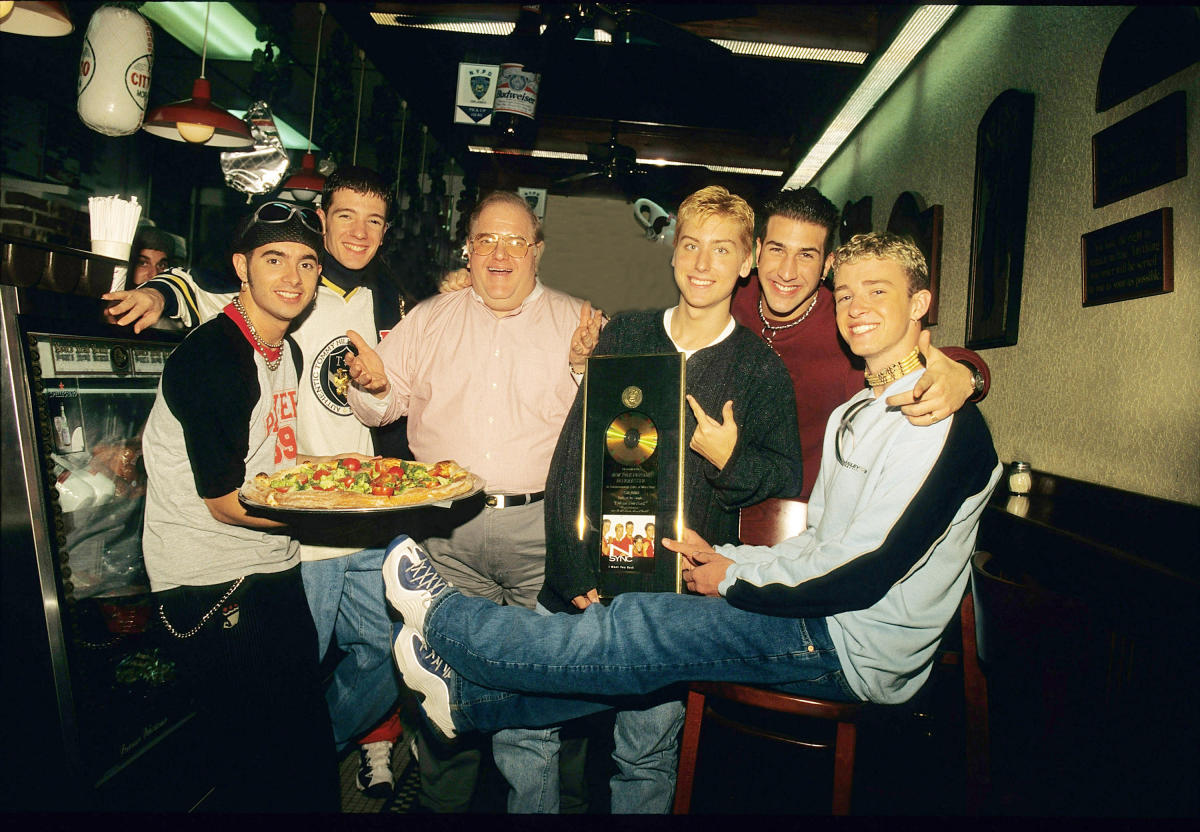True-crime fans gravitated immediately to Netflix’s Dirty Pop: The Boy Band Scam once it dropped on the streaming service July 24, but their reactions seem to be less about the scams and more about how the filmmakers set out to tell the story.
The three-part docuseries, which earned the No. 2 spot on Netflix’s Global top 10 most-watched TV shows for the week of July 22-28, follows the rise and fall of Lou Pearlman, who is best known for discovering and managing ’90s boy bands the Backstreet Boys, NSync, O-Town, Take 5 and solo acts Aaron Carter and Brooke Hogan.
But beneath the surface of his very public and successful talent management career, Pearlman was also implicated in a $300 million Ponzi scheme and was arrested in 2007. He was charged with conspiracy, money laundering and making false statements and sentenced to 25 years in prison, where he died in 2016.
Typically, documentaries will leverage archival footage and photos to help paint a picture of its subject, alongside interviews with people who knew them or, in the case of historical documentaries, studied them. Dirty Pop co-executive producer Michael Johnson told Netflix’s Tudum that the filmmakers had a “vast archive” to pull from, including from Pearlman’s personal files and stories in his 2003 biography, Bands, Brands and Billions: My Top 10 Rules for Making Any Business Go Platinum.
But the filmmakers went one step further. Around three minutes into the first episode, there’s a shot of Pearlman sitting in his office, a framed gold record in the background. Then, a disclaimer reads: “This footage has been digitally altered to generate [Pearlman’s] voice and synchronize his lips.”
It’s a real clip of Pearlman but injected with AI to manipulate his mouth and body movements to match a voice actor reading sections from Pearlman’s book. The AI version of Pearlman shows up multiple times, helping narrate the series. The producers hired experts from MIT Media Lab, Pinscreen and Resemble AI to help alter the footage.
“We were excited to push the envelope with new technology to assist in our telling of this incredible story,” Johnson told Tudum. “We wanted to utilize this new technology in the most ethical way possible as an additive storytelling tool.”
Some viewers disagreed, calling the move “weird and unnecessary” and “super distracting” on X.
“Using AI for Lou’s voice has me side-eyeing Netflix,” one viewer wrote on X. “This is dangerous. They’re trying to normalize another way to slide this in.”
Jürgen Schmidhuber, widely considered a pioneer in AI research, told Yahoo Entertainment that he understood the discomfort with the filmmakers’ manipulation of Pearlman, but didn’t think it was that different from actors re-creating scenes in other documentaries.
“Many previous documentaries about famous dead people, such as Napoleon, have used human actors to illustrate what happened and everyone knew it was just an actor,” he said. “Why should AI actors be any different, as long as they are clearly labeled as such?”
But the central concern viewers who watched the series voiced on social media aligns with one of the main concerns with AI overall: fact and fiction are becoming increasingly harder to differentiate between. People are especially concerned with AI being introduced to mediums that are thought to be more reliable than, say, social media — such as documentaries and even Google searches.
Netflix did not respond to Yahoo Entertainment’s request for comment.
Netflix clearly labels Pearlman’s narration as AI in each episode — a step in the right direction after the backlash the streamer faced after being accused of using unlabeled AI in the 2024 documentary What Jennifer Did. Executive producer Jeremy Grimaldi insisted the photos accused of being digitally altered in What Jennifer Did were genuine but said the background was anonymized. Netflix did not publicly comment on the accusations when the documentary was released in April.
Legally speaking, while Pearlman could not permit himself to be artificially manipulated for the documentary, there are ways around it, Vivek Jayaram, the founder of Jayaram Law, told Yahoo Entertainment.
“If the documentary was done with consent of [Pearlman’s] Estate (if any), they may have licensed his posthumous publicity rights to them,” Jayaram said. “If he died in a state with no posthumous rights of publicity (which includes likeness [and] voice), then those rights died with him.”
Johnson told Tudum that filmmakers did “secure Lou’s life rights” and “only used words written by Lou himself.”
“With the AI spread across the series, the viewer gets to experience the difference between Lou’s reality and the reality that the rest of the world experienced,” Johnson explained. “This juxtaposition is essential to understanding Lou as a human being as well as a devious con man.”
This article contains affiliate links; if you click such a link and make a purchase, we may earn a commission.
EMEA Tribune is not involved in this news article, it is taken from our partners and or from the News Agencies. Copyright and Credit go to the News Agencies, email news@emeatribune.com Follow our WhatsApp verified Channel





